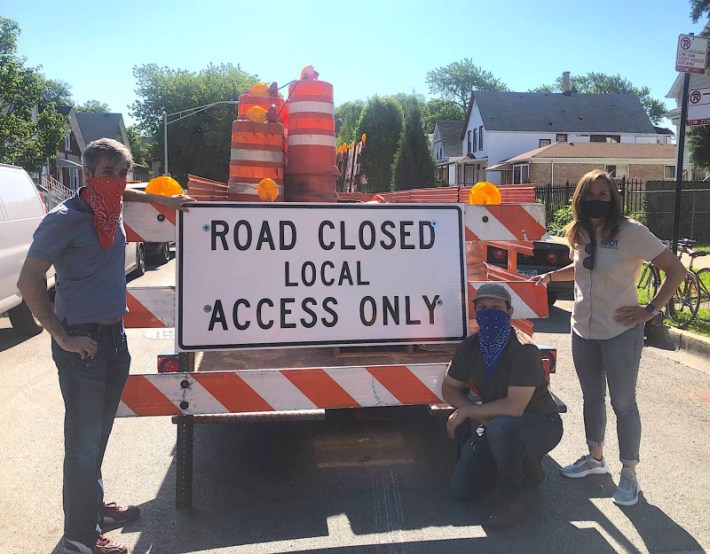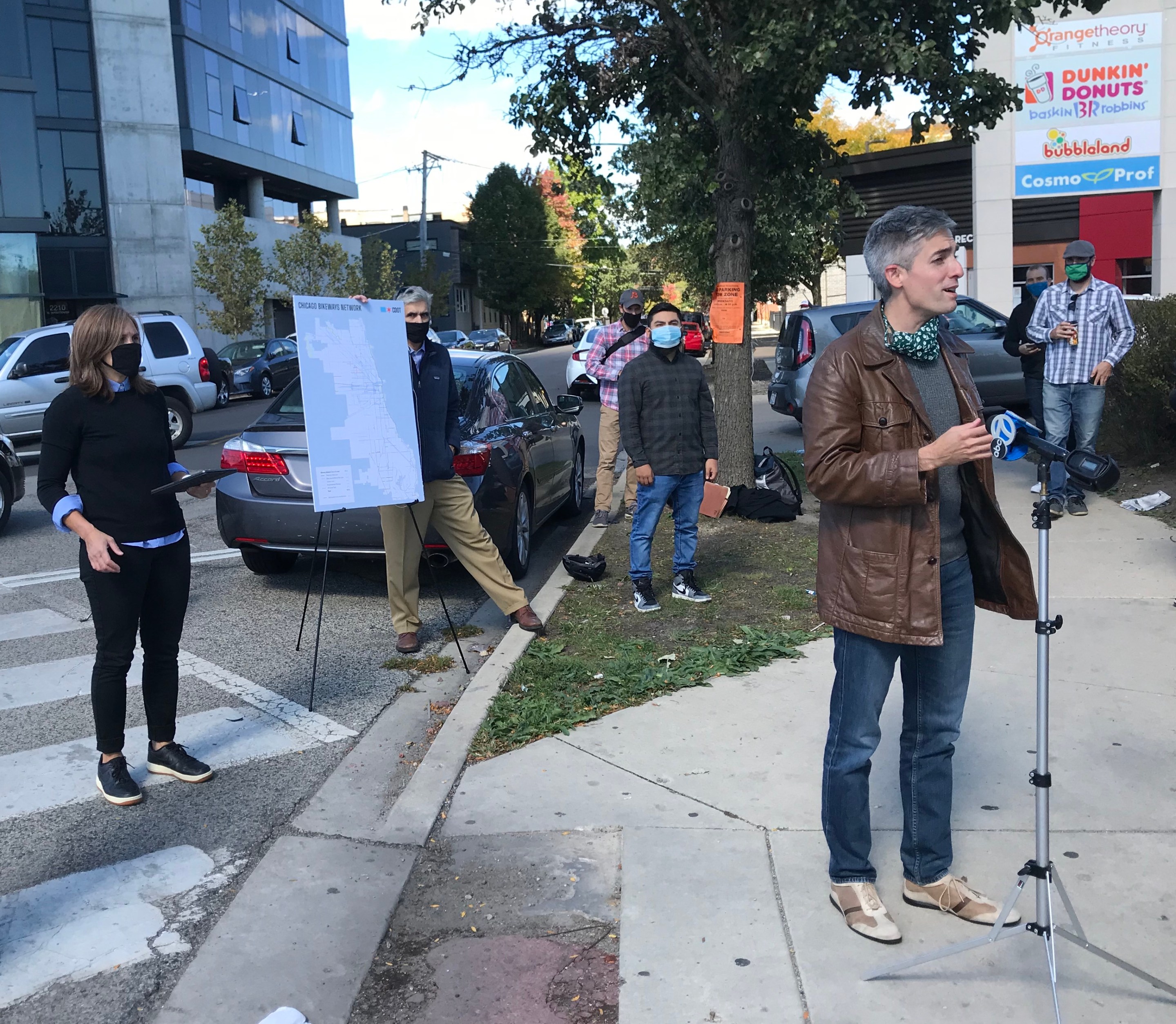Words matter. In the mainstream media, it's common to refer to crashes where drivers injure or kill people as "accidents," implying that these are unfortunate, but unavoidable incidents, when the reality is that it's possible to dramatically reduce serious collisions through better roadway design and public policy.
We saw a particularly egregious case of this phenomenon recently when a reckless driver struck NBA star Shawn Bradley from behind on his bike, paralyzing him. Many news outlet referred to the case as a "bike accident," a phrase that essentially absolved the motorist of responsibility.
Getting rid of the term "accident" to refer to traffic crashes is a small but meaningful step we can take to change the way people think about our current traffic violence epidemic. At the city of Chicago, the transportation department has modified its language accordingly, noting in the Vision Zero plan that "Traffic crashes are not 'accidents.' We acknowledge that traffic deaths are preventable and unacceptable and commit to using all available tools to influence the conditions and behaviors that lead to serious crashes."
However, the Chicago Municipal Code still contains many references to traffic "accidents." That probably has a bit of a subliminal effect on aldermen and other decision-makers when it comes to initiatives for creating safer streets.
Near Northwest alderman Daniel LaSpata (1st) wants to change that. He recently introduced a new ordinance that would change all language in the code describing traffic crashes as "accidents" to more appropriate terminology.
LaSpata said he got the idea last fall during the 2021 budget talks. He explained that while many initiatives he and his allies at the City Council are trying to accomplish are heavy political lifts, "This came from thinking about what is one of the lighter lifts we can do with the biggest impact."
"Our language reflects how we think and communicate," LaSpata added. "An 'accident' suggests an 'oops', implying inevitability, rather than being the product of how we intentionally design our infrastructure. That language is irresponsible and inaccurate."
LaSpata noted than nowadays transportation planners and advocates generally don't refer to crashes as accidents. "In grad school at UIC I was taking a class in sustainable mobility, and the presenters on Vision Zero [the movement to eliminate all serious and fatal collisions] discussed the importance of accurate language in describing transportation issues... We can change our policies and infrastructure in ways that move us towards Vision Zero, and that is work we really want to highlight."
The alderman said that changing the language in the Municipal Code is a relatively simple process. "It's basically doing a Confrol-F. [The Chicago Department of Transportation] is going through the code to identify other places we might have missed, or other places where 'accident' is used [legitimately] outside the realm of pedestrians and traffic."
CDOT spokesperson Mike Claffey confirmed this. "We are supportive of this idea as it aligns with the Vision Zero principle that a crash is not an accident, but a preventable occurrence. And we are working to help draft a proposal that would ensure that the Municipal Code does not use 'accident' to describe traffic crashes."
LaSapata hopes that the City Council's Committee on Pedestrian and Traffic Safety will approve his ordinance in the coming weeks, and that the full the City Council will then pass the legislation. He said he doesn't expect any opposition from his colleagues, but on the other hand you never know. "There are some things that you think are beyond criticism and someone will step forward and object."
Usually when that happens in Chicago's City Council, that someone is notorious contrarian and grandstander Near South alderman Ray Lopez (15th), nicknamed "Showpez" by his friends.
In addition to codifying how the city talks about crashes, LaSpata hopes the new ordinance is an opportunity to change some of his fellow aldermen's thinking about traffic safety issues. "We still have far too many people being injured and killed [in traffic], and that does not have to be the case.

There was a 45 percent spike in traffic deaths on Chicago Streets last year, largely because of increased speeding due to fewer vehicles on the road during COVID. "Stay at Home could have been an opportunity to rethink our transportation system," LaSpata said. "At times I feel like we're learning all the wrong lessons from the pandemic, seeing people moving towards more single-occupant vehicle trips. We need to have some hard conversations about what transportation will look like post-pandemic."
Active Transportation Alliance advocacy director Jim Merrell applauded the alderman's "crash not accident" initiative. "We cannot build a culture of safety on our streets if we continue to use language that makes it seem like preventable crashes are just an inevitable part of the world around us. Being intentional about how we talk about crashes will lead us to more constructive dialogue and action. We are grateful to Alderman La Spata for leading this important conversation."




